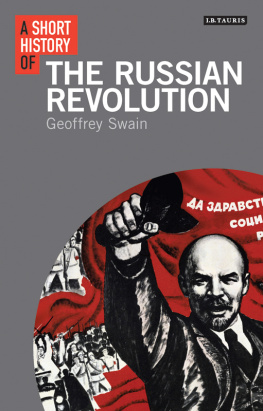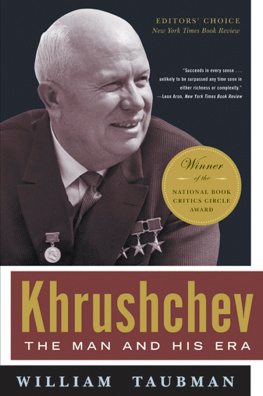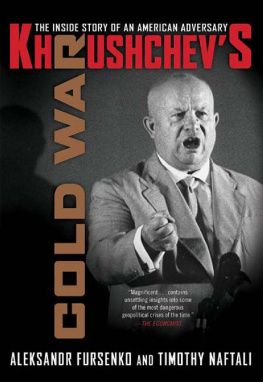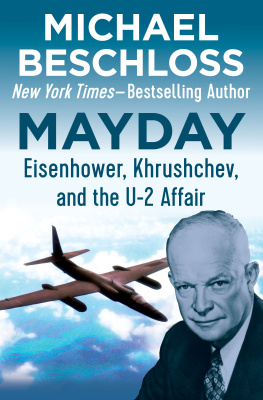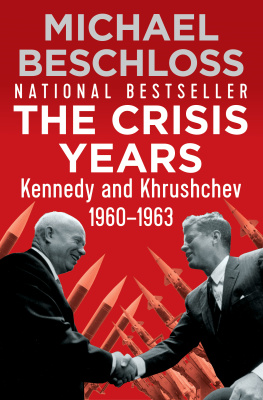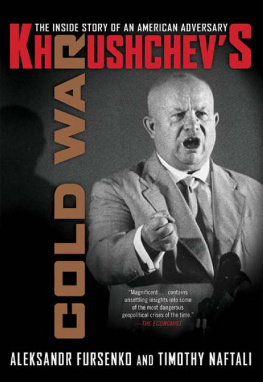Today Khrushchev tends to be remembered for his buffoonery: as the man who banged his shoe on his desk at the assembly of the United Nations. This approachable introduction to Khrushchev displays another side, that of the serious politician attempting to reform the Soviet Union after Stalins death.
Khrushchev was a key player in the Soviet experiment. He was a labour activist in the pre-revolutionary years, fought in the civil war, rose through the party ranks, denounced Stalin, and beat the United States in the space race. Once Khrushchev became Soviet leader, he realized that the system Stalin had bequeathed him needed to be modernized and reformed. And when those reforms in turn ran out of steam, he came to the conclusion that only further radical change could prevent the atrophy of the Soviet Union.
In this book, Geoffrey Swain offers an engaging account of Khrushchevs political career and his wider role in Soviet and world politics, arguing that Khrushchev was overthrown in 1964 not because of his incompetence, but because the radical reforms he had in mind threatened the interests of the communist party apparatus.
Geoffrey Swain holds the Alexander Nove Chair in Russian and East European Studies at the University of Glasgow, UK.
European History in Perspective
General Editor: Jeremy Black
Benjamin Arnold Medieval Germany
Ronald Asch The Thirty Years War
Nigel Aston The French Revolution, 17891804
Nicholas Atkin The Fifth French Republic
Christopher Bartlett Peace, War and the European Powers, 18141914
Robert Bireley The Refashioning of Catholicism, 14501700
Donna Bohanan Crown and Nobility in Early Modern France
Arden Bucholz Moltke and the German Wars, 18641871
Patricia Clavin The Great Depression, 19291939
John D. Cotts Europes Long Twelfth Century
Paula Sutter Fichtner The Habsburg Monarchy, 14901848
Mark R. Forster Catholic Germany from the Reformation to the Enlightenment
Mark Galeotti Gorbachev and his Revolution
David Gates Warfare in the Nineteenth Century
Alexander Grab Napoleon and the Transformation of Europe
Nicholas Henshall The Zenith of European Monarchy and its Elites
Martin P. Johnson The Dreyfus Affair
Tim Kirk NaziGermany
Ronald Kowalski European Communism
Paul Douglas Lockhart Sweden in the Seventeenth Century
Kevin McDermott Communist Czechoslovakia, 194589
Kevin McDermott Stalin
Graeme Murdock Beyond Calvin
Peter Musgrave The Early Modern European Economy
J. L. Price The Dutch Republic in the Seventeenth Century
A. W. Purdue The First World War
A. W. Purdue The Second World War (2nd edn)
Christopher Read The Making and Breaking of the Soviet System
Christopher Read War and Revolution in Russia, 191422
Francisco J. Romero-Salvado Twentieth-Century Spain
Matthew S. Seligmann & Roderick R. McLean Germany from Reich to Republic, 18711918
David A. Shafer The Paris Commune
Graeme Small Late Medieval France
Geoffrey Swain Khrushchev
David J. Sturdy Louis XIV
David J. Sturdy Richelieu and Mazarin
Hunt Tooley The Western Front
Peter Waldron The End of Imperial Russia, 18551917
Peter Waldron Governing Tsarist Russia
Peter G. Wallace The Long European Reformation (2nd edn)
Brett Edward Whalen The Medieval Papacy
James D. White Lenin
Patrick Williams Philip II
Peter H. Wilson From Reich to Revolution
European History in Perspective
Series Standing Order
ISBN 9780333716946 hardcover
ISBN 9780333693360 paperback
(outside North America only)
You can receive future titles in this series as they are published by placing a standing order. Please contact your bookseller or, in the case of difficulty, write to us at the address below with your name and address, the title of the series and the ISBN quoted above.
Customer Services Department, Macmillan Distribution Ltd, Houndmills, Basingstoke, Hampshire, RG21 6XS, UK
Geoffrey Swain 2016
All rights reserved. No reproduction, copy or transmission of this publication may be made without written permission.
No portion of this publication may be reproduced, copied or transmitted save with written permission or in accordance with the provisions of the Copyright, Designs and Patents Act 1988, or under the terms of any licence permitting limited copying issued by the Copyright Licensing Agency, Saffron House, 610 Kirby Street, London EC1N 8TS.
Any person who does any unauthorized act in relation to this publication may be liable to criminal prosecution and civil claims for damages.
The author has asserted his right to be identified as the author of this work in accordance with the Copyright, Designs and Patents Act 1988.
First published 2016
by PALGRAVE
Palgrave in the UK is an imprint of Macmillan Publishers Limited, registered in England, company number 785998, of 4 Crinan Street, London, N1 9XW.
Palgrave Macmillan in the US is a division of St Martins Press LLC, 175 Fifth Avenue, New York, NY 10010.
Palgrave is a global imprint of the above companies and is represented throughout the world.
Palgrave and Macmillan are registered trademarks in the United States, the United Kingdom, Europe and other countries.
ISBN 9781137335500 hardback
ISBN 9781137335494 paperback
This book is printed on paper suitable for recycling and made from fully managed and sustained forest sources. Logging, pulping and manufacturing processes are expected to conform to the environmental regulations of the country of origin.
A catalogue record for this book is available from the British Library.
A catalog record for this book is available from the Library of Congress.



